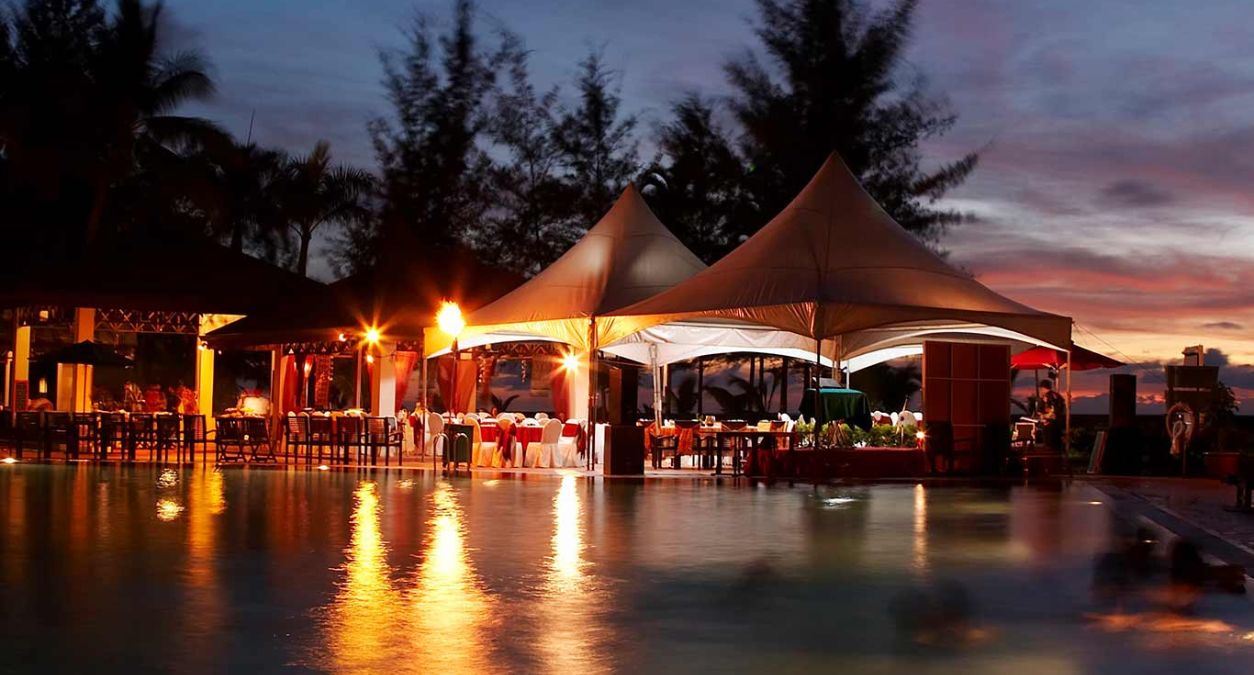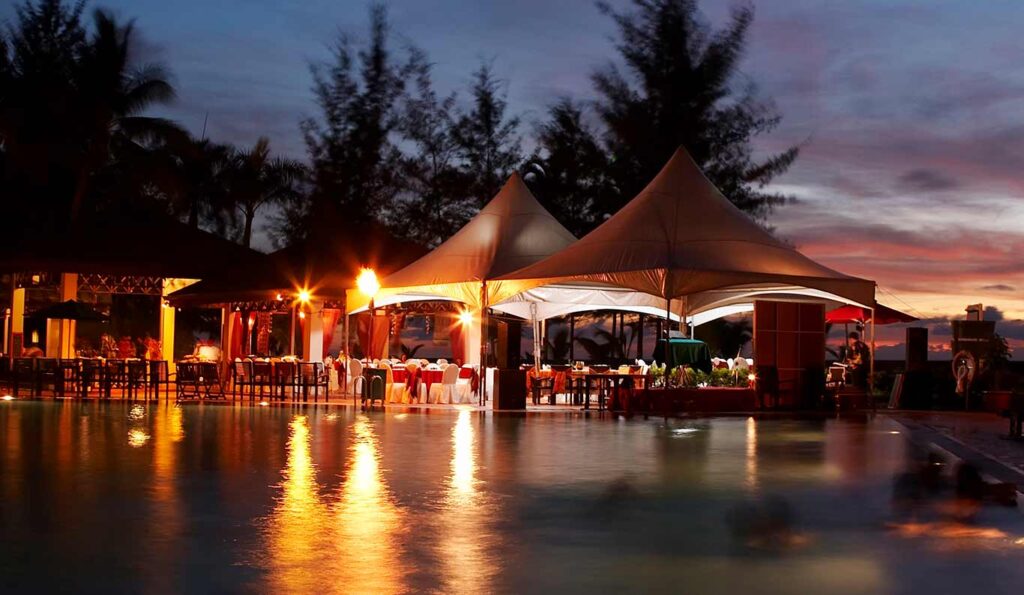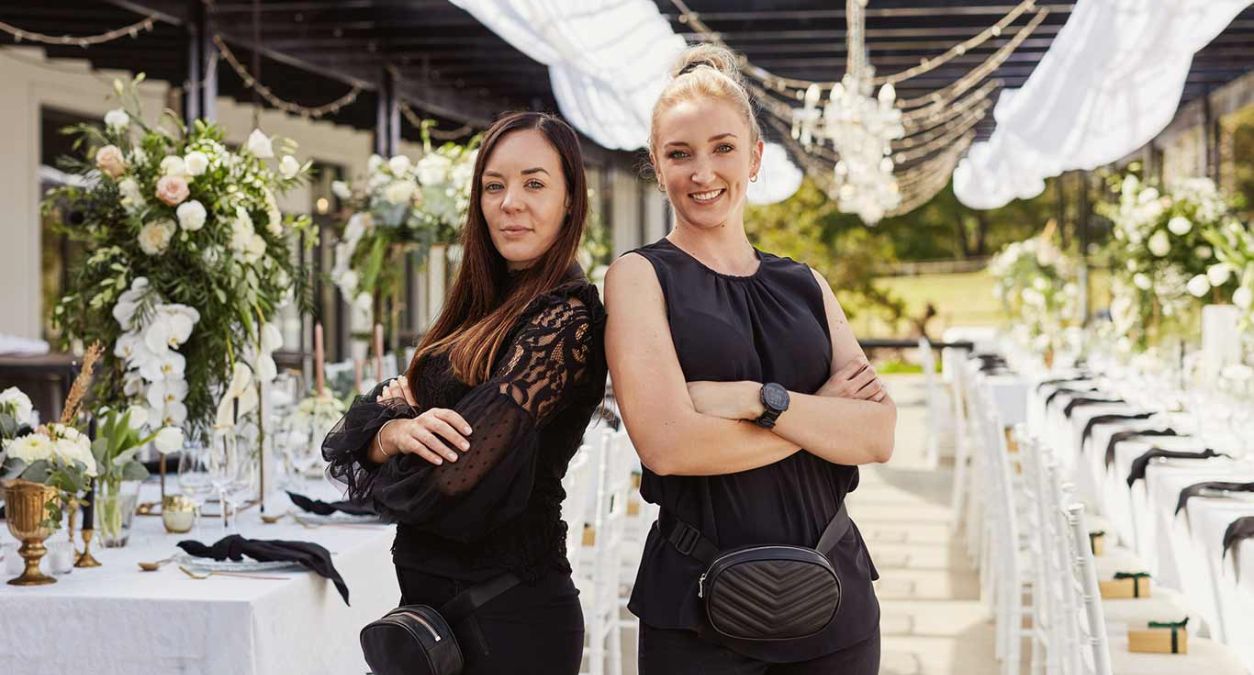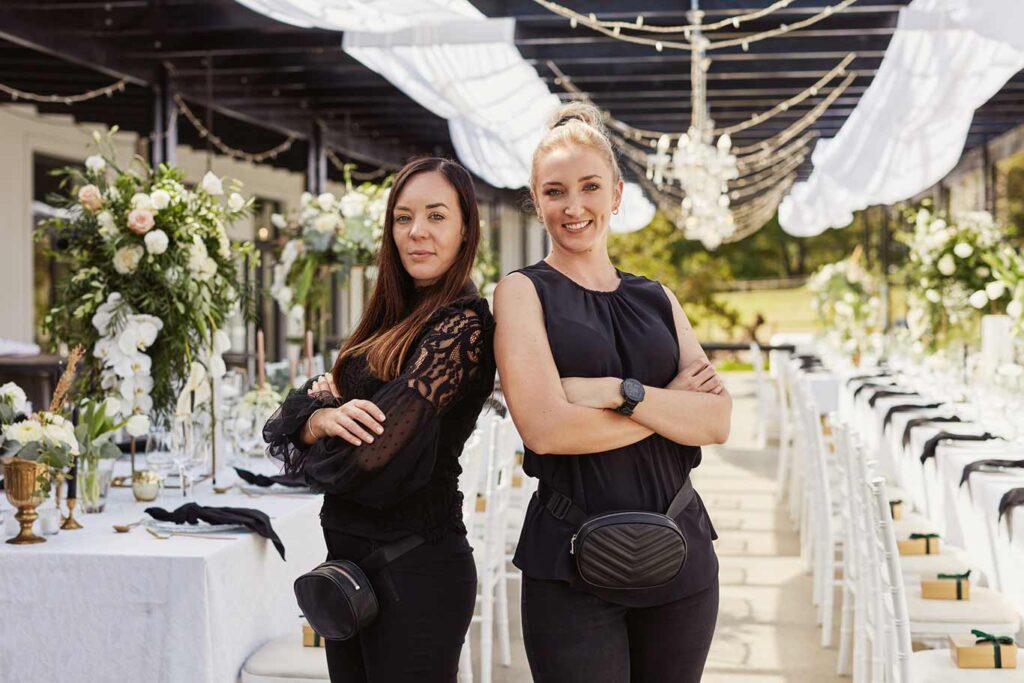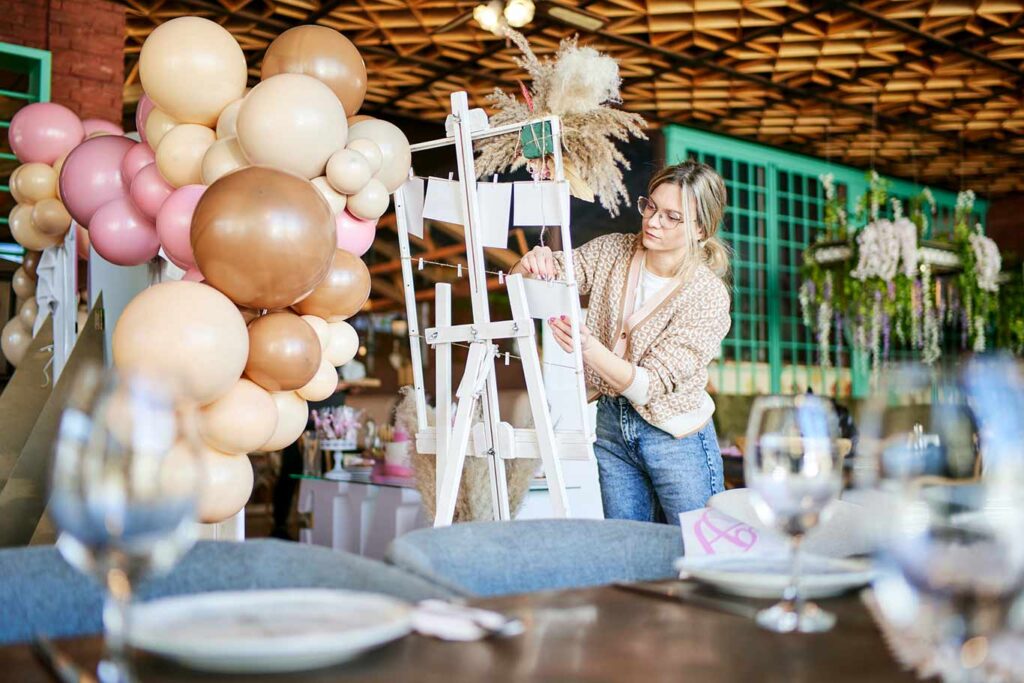Contributors
My main focus is managing the blog and product content for the Protectivity website ensuring everything aligns wi...
Planning an event is a complex process with multiple components to consider, so understanding the costs involved is imperative to its success. Whether you’re organising a small community gathering or a medium-sized festival, budgeting plays a vital role in ensuring everything runs smoothly.
A well-thought-out budget helps you allocate resources effectively, avoid unexpected financial hiccups, and enhance the overall attendee experience. From securing the perfect venue to providing top-notch entertainment, every detail impacts both the event’s success and the satisfaction of your guests. So, let’s dive into the nitty-gritty of event planning fees and learn how to make your next event not just memorable, but also financially savvy!
Venue Costs
When planning an event, one of the most significant expenses you will encounter is the cost of the venue. The choice of venue can dramatically impact the overall budget and experience of the event. Here’s a breakdown of what to consider regarding venue costs.
Types of events
Events come in all shapes and sizes, each with its unique set of costs. For intimate social gatherings like birthday parties or small weddings, expect to spend between £500 and £5,000, covering venue hire, catering, and basic decorations.
Charity events might run from £1,000 to £10,000, with costs driven by venue hire, promotional efforts, and entertainment.
Large public events like festivals or trade shows can easily exceed £50,000, encompassing extensive permits, large-scale staging, security, and a variety of vendors. Each event type requires careful budgeting to balance quality and cost, ensuring a successful and enjoyable experience for all attendees.
Hire Costs
Flat Fee
- Some venues charge a straightforward flat fee for a specific period. This fee typically covers the rental of the space and basic facilities.
Hourly Rates
- Other venues may charge by the hour, which can be beneficial for shorter events. However, this can become expensive for longer durations.
Per Person
- Especially common in hotels and conference centres, this model charges based on the number of attendees. It often includes additional services like catering.
Minimum Spend
- Some venues require a minimum spend on food, beverages, or services, ensuring that a certain revenue is generated from the event.
Hidden Fees
Cleaning Fees
- Many venues charge additional fees for post-event cleaning. This cost can vary based on the size and type of event.
Overtime Charges
- If the event runs over the agreed time, venues may impose hefty overtime fees.
Service Charges
- Extra costs for staff services such as setup, security, and technical support can add up quickly.
Equipment Rentals
- Fees for audiovisual equipment, furniture, and other rentals are often not included in the base price.
Marketing and Promotion

Planning an event is only half the battle; the other half is getting the word out and ensuring people show up. Marketing is your friend here, but it can also be a major cost.
Print Media
Flyers and Posters
- The old-school method of getting attention. Printing costs can add up, especially if you go for high-quality paper and vibrant colours. Expect to spend anywhere from £150 to £800 depending on the quantity and quality.
Newspaper Ads
- Great for reaching a local audience but can be pricey. Rates vary widely, from £40 for a small local paper to several thousand pounds for a larger publication.
Digital Marketing
Flyers and Posters
- The old-school method of getting attention. Printing costs can add up, especially if you go for high-quality paper and vibrant colours. Expect to spend anywhere from £150 to £800 depending on the quantity and quality.
Newspaper Ads
- Great for reaching a local audience but can be pricey. Rates vary widely, from £40 for a small local paper to several thousand pounds for a larger publication.
Social Media
Targeted ads can cost as little as 70p per click. A typical campaign might run you £150 to £800 depending on reach.
Email Campaigns
Platforms like Mailchimp or Constant Contact: Costs depend on your subscriber list size. Expect to pay £8 to £240 per month.
Press Releases
A polished press release can cost from £150 to £800. It’s an investment in making sure your message is clear and impactful.
Distributing your press release to media outlets and journalists can cost between £240 and £2400, depending on the reach and prominence of the service.
Equipment and Supplies

Getting your event set up involves more than just booking a venue and marketing. You’ll need a host of equipment and supplies to make everything run smoothly and look great. Let’s break down the essentials you’ll need to budget for.
Audio and Sound
A decent PA system can range from £150 for a small setup to over £2000 for a professional-grade system. Don’t forget the cost of microphones and stands, which can add another £50 to £300.
Hiring a sound engineer to manage your audio can cost between £150 to £500 per day. It’s worth it to keep things sounding crisp and clear.
Need extra speakers for a larger venue? Budget around £100 to £400 each, depending on the quality and brand.
Staging
Renting a stage can cost from £300 for a small platform to £5000 for a large, multi-tiered stage. The price depends on the size and complexity.
Custom stage design can add another £200 to £2000, depending on how elaborate you want to get.
Don’t forget safety equipment like railings and steps, which can cost an additional £100 to £500.
Decorations
Simple decorations like balloons, banners, and tablecloths can range from £50 to £300.
Going all out with themed decorations? Budget between £300 to £3000, depending on the scale and detail.
Office Supplies
Pens, paper, clipboards, and other essentials can add up to about £50 to £200.
Printing programmes, signs, and handouts can cost anywhere from £100 to £500, depending on the volume and quality.
Other supplies like name tags, badges, and tape can add another £30 to £150.
Merchandise
Lanyards and Badges
- Custom lanyards and badges can range from £1 to £5 per attendee, so budget accordingly.
Goodie Bags
- If you’re providing welcome packs, including items like brochures, maps, and freebies, budget around £5 to £15 per pack.
Staffing

When it comes to pulling off a successful event, having the right team in place is just as important as choosing the perfect venue or having top-notch equipment. Let’s break down the various staffing costs you need to consider to keep everything running smoothly.
Event Planners
These folks are the brains behind the operation, ensuring every detail is covered. Hiring an experienced event planner in the UK can set you back anywhere from £500 to £3000, depending on the event’s complexity and duration. Worth every penny to keep things stress-free!
On-the-Day Staff or volunteers
Need help setting up, directing guests, or managing registration? General event staff typically cost between £10 to £15 per hour. You might need them for a full day, so budget accordingly.
Technicians
Audio Technicians
- Ensuring the sound is spot on, audio technicians can cost between £150 to £400 per day. They’ll handle everything from setting up microphones to managing the PA system.
Lighting Technicians
- These experts make sure your event is well-lit and visually stunning. Their services can range from £150 to £500 per day.
AV Technicians
- For those who handle both audio and visual elements, expect to pay between £200 to £600 per day. They’re your go-to for any technical hiccups.
Security Personnel
Depending on the size and nature of your event, you might need professional security. Rates range from £12 to £20 per hour per guard. Peace of mind doesn’t come cheap, but it’s essential.
Clean-Up Crew
Cleaning Staff: Post-event clean-up is crucial and often overlooked. Hiring a cleaning crew can cost from £10 to £15 per hour per person. They’ll make sure you leave the venue spotless.
Catering and Hospitality
Ah, the heart of any great event – the food! Catering can make or break your event, and it’s one area where you don’t want to cut corners.
In the UK, catering costs can vary as much as the British weather. For a basic buffet, you might spend around £10 to £20 per person, but if you’re looking to impress with a three-course meal, expect to fork out £30 to £100 per head.
Don’t forget about the drinks! An open bar can quickly add up, with prices ranging from £15 to £40 per guest. And if you’re thinking about themed menus or gourmet options, well, let’s just say your budget might need a stiff upper lip. But hey, as they say, good food equals good mood, so it’s worth every penny to keep your guests well-fed and happy!
Entertainment and Activities

No event is complete without some top-notch entertainment to keep your guests engaged and buzzing with excitement. Whether it’s a keynote speaker to inspire, a band to get everyone dancing, or interactive activities to break the ice, here’s a breakdown of what to expect in terms of entertainment costs in the UK.
Hiring Entertainers and Speakers
Keynote Speakers
- Bringing in a renowned speaker can set the tone for your event. Costs can range from £500 for local experts to upwards of £10,000 for high-profile names. Choose wisely – a great speaker can leave a lasting impression.
Musicians and Bands
- From a solo acoustic guitarist (£200-£500) to a full band (£1000-£5000), live music adds a vibrant touch. Remember, the better known the band, the higher the cost. And if you’re thinking of a celebrity performer, be prepared to splurge!
Comedians and Entertainers
- Laughter is the best medicine, and hiring a comedian can cost between £300 to £2000 depending on their fame and experience. Magicians, circus acts, and other entertainers fall into a similar price range.
Permits and Licenses
You can’t escape it…the red tape – it’s not the most exciting part of event planning, but it’s crucial to keep everything above board. In the UK, you might need various permits and licences depending on your event.
A Temporary Event Notice (TEN) for serving alcohol or hosting late-night music will set you back around £21. If you’re planning a larger event with more than 499 people, you’ll need a full premises licence, which can cost from £100 to £1900 depending on the scale and location.
Don’t forget about the music licence from PRS for Music and PPL, which can range from £50 to a few hundred pounds based on your event size and duration. It might seem like a lot of hoops to jump through, but it’s all part of making sure your event is a smashing success without any legal hiccups!
Contingency and Unexpected Costs

Let’s face it, even the best-laid plans can go awry. That’s where contingency costs come in – your financial safety net for those “just in case” moments. In the UK, it’s wise to set aside about 10-15% of your total event budget for emergencies and unexpected expenses.
Maybe the weather takes a turn and you need extra marquees, or the sound system decides to take a day off and needs a last-minute replacement. Perhaps the caterer runs out of those mini quiches everyone loves, and you need an urgent top-up.
Whatever the curveball, having a contingency fund ensures you can handle it with grace and keep your event running smoothly. So, consider this your budget’s rainy-day fund – because a little financial cushion can save a lot of stress!
Event Insurance
Event Insurance
- This can protect against unforeseen incidents, property damage, personal injuries and cancellations. Costs vary based on the event size and risk factors but are essential for peace of mind.
Liability Insurance
- Typically, public liability and employers’ liability are key to include in your policy. Many venues require proof of liability insurance to cover potential damages or injuries during the event. If you hire staff, it’s a legal requirement to have employers’ liability insurance.
Get Event Insurance with Protectivity
For event planners, ensuring the success of an event is always a priority. This includes staying within budget. However, the events industry is fraught with potential issues, and things can go wrong. Mishaps and unforeseen problems can lead to expensive bills, affecting both the event’s profitability and your earnings as an event planner.
Incorporating risk assessments and contingency plans into your planning process is essential, and having the right insurance is a crucial part of this strategy. Protectivity offers a range of event insurance policies tailored to the scale and scope of your events. Our policies include public liability coverage up to £10 million, event equipment cover, and event money cover as standard.
To further safeguard your events, you can opt for additional coverage such as event cancellation insurance and employers’ liability insurance, depending on your specific needs.
Learn more about our event policies and request a quote online today.
Get Event Insurance from Protectivity
*Disclaimer – This blog has been created as general information and should not be taken as advice. Make sure you have the correct level of insurance for your requirements and always review policy documentation. Information is factually accurate at the time of publishing but may have become out of date.
Last updated by




